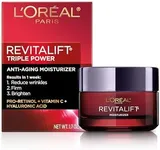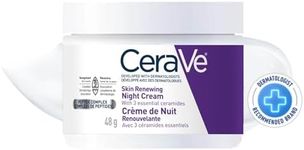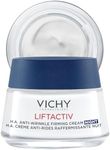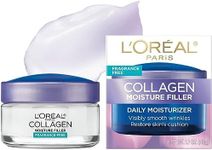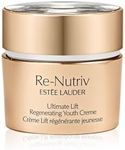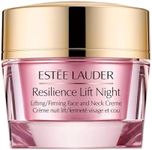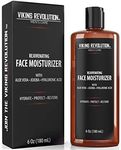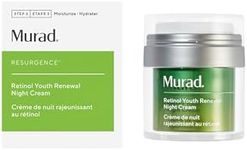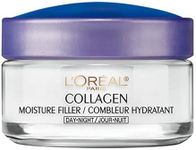Buying Guide for the Best Anti Aging Face Creams
Choosing the right anti-aging face cream can feel overwhelming with so many options available, but understanding what matters most can help you make a smart choice. The best approach is to focus on your skin’s unique needs, such as dryness, sensitivity, or specific concerns like wrinkles or uneven tone. Always consider your skin type and any allergies or sensitivities you may have. Remember, consistency is key—using a product regularly is more important than chasing the latest trend. Patch test new products to avoid irritation, and be patient, as results often take several weeks to become noticeable.Active IngredientsActive ingredients are the components in a cream that actually deliver the anti-aging benefits, such as reducing wrinkles or improving skin texture. Common actives include retinol, peptides, hyaluronic acid, vitamin C, and antioxidants. Each ingredient targets different concerns: for example, retinol is known for smoothing fine lines, while hyaluronic acid hydrates. When choosing, think about your main skin goals—if you want to brighten your skin, look for vitamin C; for plumping and hydration, hyaluronic acid is a good choice. If you have sensitive skin, start with milder actives and introduce stronger ones gradually.
Skin Type CompatibilitySkin type compatibility means how well a cream matches your skin’s natural characteristics, such as being oily, dry, combination, or sensitive. Creams for dry skin are usually richer and more moisturizing, while those for oily skin are lighter and non-comedogenic (won’t clog pores). If you have sensitive skin, look for fragrance-free and hypoallergenic formulas. To pick the right one, identify your skin type and choose a product designed for it—this helps avoid irritation and ensures the cream works effectively.
Texture and AbsorptionTexture refers to how thick or light the cream feels, and absorption is how quickly it sinks into your skin. Thicker creams are better for nighttime use or very dry skin, while lighter lotions or gels are ideal for daytime or oily skin. If you prefer a non-greasy feel, look for fast-absorbing formulas. Your lifestyle and preferences matter here—if you wear makeup, a lightweight cream may work better under it, while a richer cream can be soothing before bed.
SPF ProtectionSPF (Sun Protection Factor) in a face cream helps shield your skin from sun damage, which is a major cause of aging. Some anti-aging creams include SPF, making them convenient for daytime use. SPF values usually range from 15 to 50; higher numbers offer more protection. If you spend a lot of time outdoors, choose a higher SPF. For nighttime, SPF isn’t necessary. Always remember, even the best anti-aging ingredients can’t fully protect your skin if you skip sun protection.
Fragrance and AdditivesFragrance and additives are extra ingredients that can make a cream smell pleasant or feel luxurious, but they can also cause irritation, especially for sensitive skin. If you have allergies or easily irritated skin, opt for fragrance-free and minimal-ingredient formulas. If you enjoy a sensory experience and have no sensitivities, a lightly scented cream may be enjoyable. Always check the ingredient list if you have known allergies.
PackagingPackaging affects both the freshness of the ingredients and the ease of use. Air-tight pumps or tubes help protect sensitive ingredients like vitamin C and retinol from light and air, which can make them less effective over time. Jars are common but can expose the product to air and bacteria each time you open them. If you want to maximize the effectiveness and hygiene of your cream, look for airless pumps or tubes.
